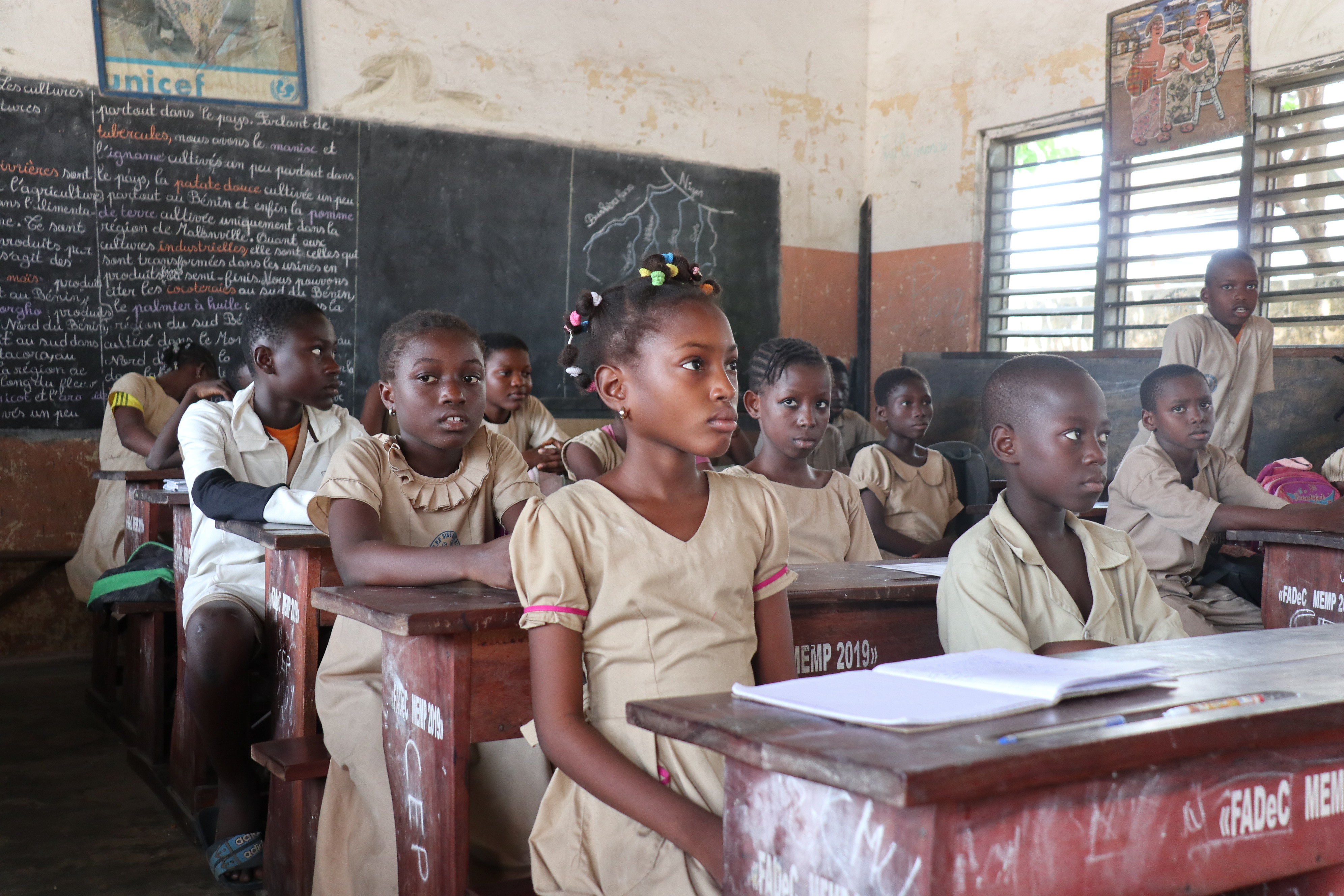In Cambodia, the COVID-19 pandemic has increased child domestic labour, and as prolonged school closures continue, the need to find jobs outside the home further increases the risk of child exploitation.
In Poipet, north-western Cambodia, 17-year-old Seiha* was eager to return to school when it reopened after six months of closure. Due to the loss of livelihoods during the COVID-19 pandemic, her family had fallen into poverty and therefore could not afford to provide her with access to e-learning and she sorely missed her classroom environment.
Despite the reopening of classes at the end of last year due to preventive measures, Seiha's school bus never resumed its route and she had no way of getting to school since her family could not afford the 2.50 $ per day it would cost for private transport. " Every day my friends and I pray that the authorities will allow the bus to run because we miss school so muchsays Seiha. I miss my school, my classes and my teachers.
Increasingly poor families
Unfortunately, Seiha's story is not unique. In a survey conducted by Save The Children in Cambodia in 2020, more than two-thirds of households (67 %) surveyed reported losing their income, with almost half (44 %) reporting losing more than half their income.
When schools closed again in March 2021 (and are still closed at the time of writing), the pressure began to build on Seiha to start earning a full-time income. Recently, she left the city to work on a cashew farm to support her family. She does not know when or if she will return to her school in the city.
Seiha is one of 3.2 million students across Cambodia who experienced 96 days of school closures in 2020, which, according to the UNDP, resulted in a 4% drop in human development, equivalent to reversing the progress made over the past four years. This undoes the gains made in reducing poverty and improving access to education.
Assessing the risks
To understand the needs of Cambodian students during the pandemic, the Ministry of Education, Youth and Sports and the Education Sector Working Group undertook a comprehensive sector assessment. The assessment found that both girls and boys were at increased risk during school closures, with a significant proportion of both groups (17 % and 23 % respectively) reporting facing additional violence, abuse or exploitation.
More than half of the respondents (61%) in the evaluation reported that children had to contribute more to household chores since the pandemic, and a small number reported that children were working full-time (6 %) or part-time (4 %) since school closure. It was found that students who had already dropped out of school or who reported being at high risk of dropping out were more likely to have started working or to have increased their contribution to household chores compared to students who reported a low or no risk of dropping out.
While Seiha is almost considered an adult now, her level of education (sixth grade) is low for her age and interrupting her schooling now would greatly limit her chances of finding gainful employment in the future as well as her opportunities to break the cycle of poverty in which her family finds itself.
Loss of learning
With additional domestic chores, Cambodian children do not have access to the distance learning measures put in place during school closures, and run the risk of losing their learning by forgetting what they have learned in class. A risk about which teachers are also expressing concern.
Chom Srey Touch, a sewing teacher at the local NGO Damnok Toek Education Centre in Poipet, has seen her classroom closed for about 11 months since the crisis began in March 2020. As the closures continue, she fears her teenage students will not return.
" I think that closures have a huge impact on students - the lack of practice and instruction makes them forget what they have learned, she explains. If the closures continue, I'm afraid they'll find work to do and never return to school.
Priority to continuity of education
Aide et Action, which leads the Consortium for Out-of-School Children, in partnership with Educate A Child (EAC), a global program of the Education Above All Foundation, is committed to ensuring the continuity of education during school closures.
Since March 2020, the NGO Damnok Toek has seen 61 students (18 %) drop out of school. Of these, half left the city with their parents in search of work in the countryside because their families could no longer afford to pay their rent. The other half found work during school closures and could no longer find time to study.
For students like Seiha who have dropped out or are at risk of dropping out, we will work with local partners like Damnok Toek to understand the needs of students and support non-formal education options when formal schooling is not realistic.
As we celebrate World Day Against Child Labour on 12 June 2021, we urge our colleagues, partners and policy makers in our countries to continue to assess the needs of children during the pandemic and to work together to provide effective solutions that leave no child behind.
*Names of children under 18 years of age have been changed






